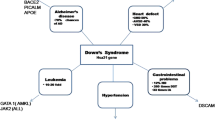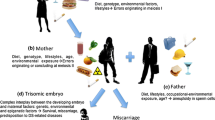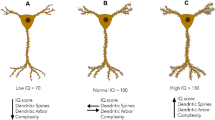Abstract
Uniparental isodisomy arises when an individual inherits two copies of a specific chromosome from a single parent, which can unmask a recessive mutation or cause a problem of genetic imprinting. Here we describe an exceptional case in which the patient simultaneously presents tyrosinemia type 1 and Angelman syndrome. The genetic studies showed that the patient presents paternal uniparental isodisomy of chromosome 15, with absence of the maternal homolog. As a consequence of this isodisomy, the patient is homozygous for the mutation IVS12+5G>A in the FAH gene, located in the chromosomal region 15q23-25, causing tyrosinemia type 1. The mutation was inherited from his father in double dosage, whereas the mother is not a carrier, which implies that the recurrence risk in the family is negligible. On the other hand, the lack of maternal contribution causes Angelman syndrome, a neurodevelopmental disorder associated with a loss of maternal gene expression in chromosome region 15q11-q13, and more specifically, of the UBE3A gene. This gene shows a tissue-specific imprinting, and only the maternally derived allele is expressed in certain areas of the brain. We observed through a literature review that uniparental disomy probably occurs more frequently than suspected, although it is more usually detected when the uniparental disomy implies the appearance of a disease because of the gene imprinting or by reduction to homozygosity of a recessive mutation. The conclusion is that uniparental disomy should always be considered when more than one genetic disease mapping to the same chromosome is present in a patient.


Similar content being viewed by others
Abbreviations
- FAH:
-
Fumarylacetoacetate hydrolase
- AS:
-
Angelman syndrome
- UPD:
-
Uniparental disomy
- PCR:
-
Polymerase chain reaction
References
Chan CT, Clayton-Smith J, Cheng XJ, Buxton J, Webb T, Pembrey ME, Malcolm S (1993) Molecular mechanisms in Angelman syndrome: a survey of 93 patients. J Med Genet 30(11):895–902
Clayton-Smith J, Laan L (2003) Angelman syndrome: a review of the clinical and genetic aspects. J Med Genet 40(2):87–95
Engel E (1980) A new genetic concept: uniparental disomy and its potential effect, isodisomy. Am J Med Genet 6:137–143
Engel E (2006) A fascination with chromosome rescue in uniparental disomy: Mendelian recessive outlaws and imprinting copyrights infringements. Eur J Hum Genet 14(11):1158–1169
Hussain K, Flanagan SE, Smith VV et al (2008) An ABCC8 gene mutation and mosaic uniparental isodisomy resulting in atypical diffuse congenital hyperinsulinism. Diabetes 57(1):259–263
Kishino T, Lalande M, Wagstaff J (1997) UBE3A/E6-AP mutations cause Angelman syndrome. Nature Genet 15(1):70–73
Martínez F, León AM, Monfort S, Oltra S, Roselló M, Orellana C (2006) Robust, easy, and dose-sensitive methylation test for the diagnosis of Prader-Willi and Angelman syndromes. Genet test 10(3):174–177
Mitchell GA, Grompe M, Lambert M, Tanguay RM (2001) Hypertyrosinemia. In: Scriver CR, Beaudet AL, Sly WS, Valle D (eds) The metabolic & molecular bases of inherited disease, 8th edn. McGraw-Hill, New York, pp 1777–1805
Ploos van Amstel JK, Bergman AJ, van Beurden EA et al (1996) Hereditary tyrosinemia type 1: novel missense, nonsense and splice consensus mutations in the human fumarylacetoacetate hydrolase gene; variability of the genotype-phenotype relationship. Hum Genet 97(1):51–59
Robinson WP, Christian SL, Kuchinka BD, Peñaherrera MS, Das S, Schuffenhauer S, Malcolm S, Schinzel AA, Hassold TJ, Ledbetter DH (2000) Somatic segregation errors predominantly contribute to the gain or loss of a paternal chromosome leading to uniparental disomy for chromosome 15. Clin Genet 57(5):349–358
Stratakis CA, Taymans SE, Schteingart D, Haddad BR (2001) Segmental uniparental isodisomy (UPD) for 2p16 without clinical symptoms: implications for UPD and other genetic studies of chromosome 2. J Med Genet 38(2):106–109
Turner CL, Bunyan DJ, Thomas NS et al (2007) Zellweger syndrome resulting from maternal isodisomy of chromosome 1. Am J Med Genet A 143A(18):2172–2177
Weinberg AG, Mize CE, Vorthen HG (1976) Occurrence of hepatoma in chronic form of hereditary tirosinemia. J Pediatr 88:434–438
Xiau P, Liu P, Weber JL, Papasian CJ, Recker RR, Deng HW (2006) Paternal uniparental isodisomy of the entire chromosome 3 revealed in a person with no apparent phenotypic disorders. Hum Mutat 27(2):133–137
Acknowledgements
Ferrer-Bolufer’s work was supported by Fundación para la Investigación del Hospital Universitario La Fe’ and ‘Fundación Bancaja. This work was partially supported by grants PI080648 from the Spanish Ministry of Health (Fondo de Investigacion Sanitaria)/FEDER (Fondo Europeo de DEsarrollo Regional) and ACOMP/2009/216 (Conselleria d’Educació, Generalitat Valenciana).
Author information
Authors and Affiliations
Corresponding author
Additional information
Communicated by: K. Michael Gibson
References to electronic databases:
Angelman syndrome (OMIM 105830)
Rights and permissions
About this article
Cite this article
Ferrer-Bolufer, I., Dalmau, J., Quiroga, R. et al. Tyrosinemia type 1 and Angelman syndrome due to paternal uniparental isodisomy 15. J Inherit Metab Dis 32 (Suppl 1), 349–353 (2009). https://doi.org/10.1007/s10545-009-9014-9
Received:
Revised:
Accepted:
Published:
Issue Date:
DOI: https://doi.org/10.1007/s10545-009-9014-9




